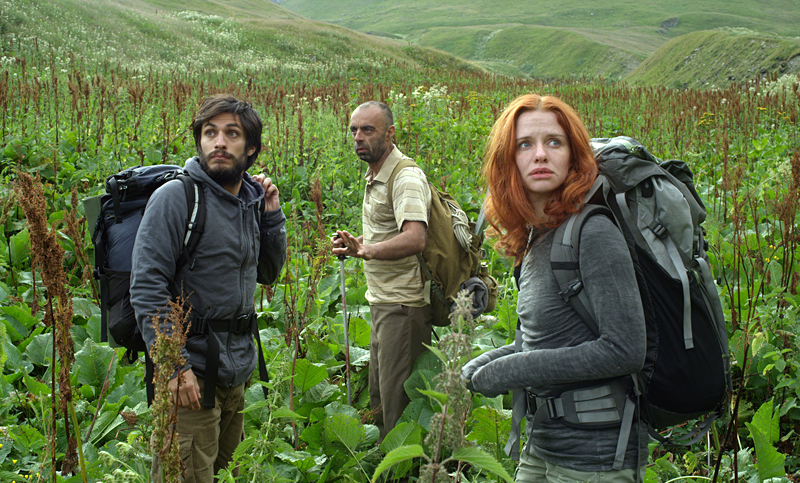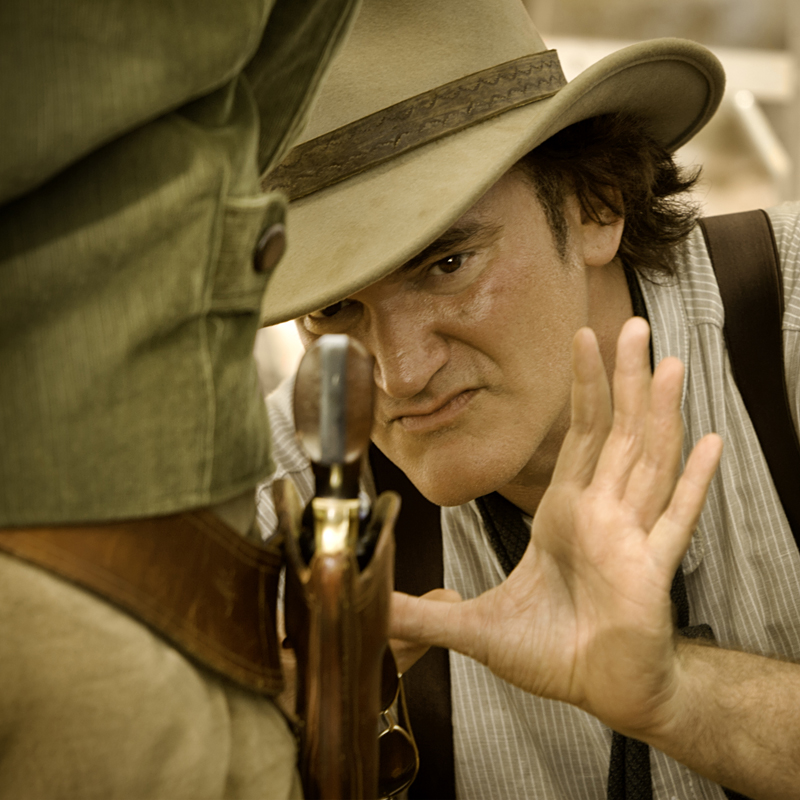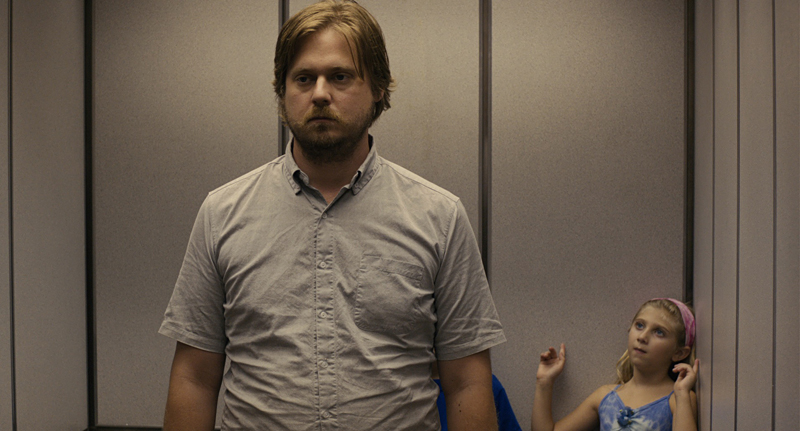The Loneliest Planet begins with a close-up of a beautiful woman, naked and trembling. It’s not what it sounds like. Nica (Hani Furstenberg), on a pre-marriage honeymoon with fiancé Alex (Gael García Bernal) in rural Georgia, is in the midst of a makeshift shower. As Nica pogoes up and down to keep warm, her slim, androgynous body, doused in milky-white soap suds, becomes a blur of motion. It takes a moment for the eyes to adjust, to register what we’re seeing: Is this body male or female? Is this a mundane act or some strange, exotic ritual? With this, writer/director Julia Loktev sets up her extraordinary second fiction feature: She announces her intent to explore sex and gender murkiness, and warns that this is a film that demands distraction-free contemplation. Loktev takes a painterly approach, crafting a study in colors—the vibrant green landscape, entire campfire-lit scenes registering as dances of shadow and warm flashes of skin—as she also charts the variable shades and tones of a single relationship. Within a scantily plotted, novella-style narrative (the movie is an adaptation of a short story by Tom Bissell), single shots become story events that mere mention would spoil. In a good relationship, you feel as if you can survive anything the world throws at you. Loktev expertly trains her camera through a fissure in such a bond, and reveals an unshakable vision of the terror of facing the unknown without a guide.
The Loneliest Planet: A Trek Rudely Interrupted








